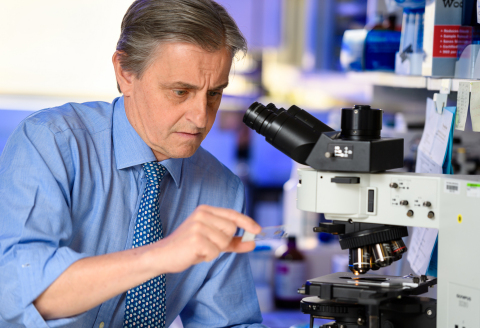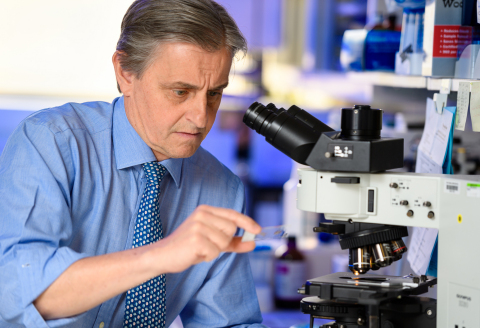MANHASSET, N.Y.--(BUSINESS WIRE)--The Feinstein Institutes for Medical Research, the global scientific home of bioelectronic medicine, has been awarded a five-year grant totaling more than $3.7 million from the National Institutes of Health’s (NIH) National Institute of General Medical Sciences (NIGMS) to support research in the molecular basis of bioelectronic medicine. Kevin J. Tracey, MD, president and CEO of the Feinstein Institutes, is the principal investigator leading the research.
Bioelectronic medicine explores the use of electronic devices to treat disease and injury through the body’s nervous system instead of pharmaceuticals. It combines molecular medicine, neuroscience and bioengineering. The goal of bioelectronic medicine is to identify neural targets that can be selectively activated or inhibited when needed and that, in turn, control the function of specific organs.
“The foundation of bioelectronic medicine is basic research in molecular biology, neuroscience and biomedical engineering,” said Dr. Tracey. “The NIH support of this work is essential for translating our science into clinical studies.”
Dr. Tracey is a pioneer in defining the molecular basis of inflammation and the Founding Father of the field of bioelectronic medicine for his early discoveries in how the body’s immune system communicates. The Public Library of Science Magazine recently recognized him as one of the world’s most 1,000 impactful scientists.
The Institute of Bioelectronic Medicine at the Feinstein Institutes continues to make breakthroughs in treating diseases, injuries and conditions, such as rheumatoid arthritis, Crohn’s disease, paralysis, obesity, among many others, with electronic devices.
Researchers from Dr. Tracey’s lab steadily publish their bioelectronic medicine findings. For example, in 2020, they discovered that a small cluster of neurons within the brain is responsible for controlling the body’s immune response and the release of cytokines, which leads to inflammation in the body. And most recently, Feinstein Institutes researchers developed a long-term implant model for vagus nerve stimulation (VNS) in mice that successfully modulates heart rate and inflammatory proteins.
About the Feinstein Institutes
The Feinstein Institutes for Medical Research is the research arm of Northwell Health, the largest health care provider and private employer in New York State. Home to 50 research labs, 2,500 clinical research studies and 5,000 researchers and staff, the Feinstein Institutes raises the standard of medical innovation through its five institutes of behavioral science, bioelectronic medicine, cancer, health innovations and outcomes, and molecular medicine. We make breakthroughs in genetics, oncology, brain research, mental health, autoimmunity, and are the global scientific leader in bioelectronic medicine – a new field of science that has the potential to revolutionize medicine. For more information about how we produce knowledge to cure disease, visit feinstein.northwell.edu.




